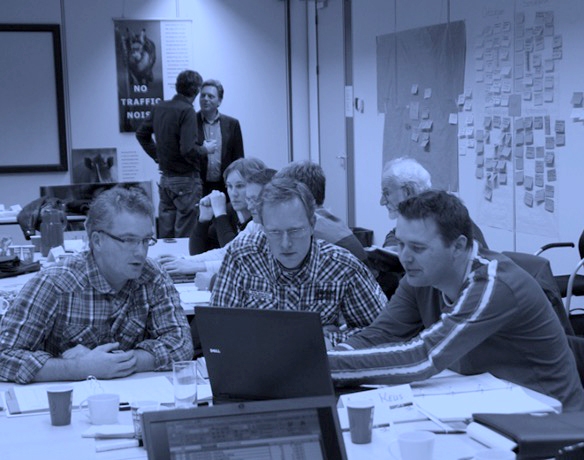mapping
In an effort to deal with changing circumstances in the (near) future, many companies opt for specialization and fragmentation. A negative effect of this is that only partial results are considered. Mutual coherence is thereby overlooked. The challenge is to curb specialization and fragmentation by looking at connection. This ultimately produces better results.

connect
In the mapping-phase we determine goals and system boundaries. We furthermore establish a relationship between operational process and strategic goals. All this is then captured in a Strategy Map, which serves as the starting point and instrument for evaluation for the project. Then, during a number of work sessions, we map the system together with team members. We do this in a structured way by using a so-called canvas. We look at the configuration of an asset, at deployment and maintenance, potential measures and innovations, and at external factors. Where relevant, we draw on our ‘knowledge library’. All this results in a concept model that captures the essence of the given issue. The mapping-phase is concluded with the first version of a roadmap: an action improvement plan for follow-up.
OUR APPROACH
